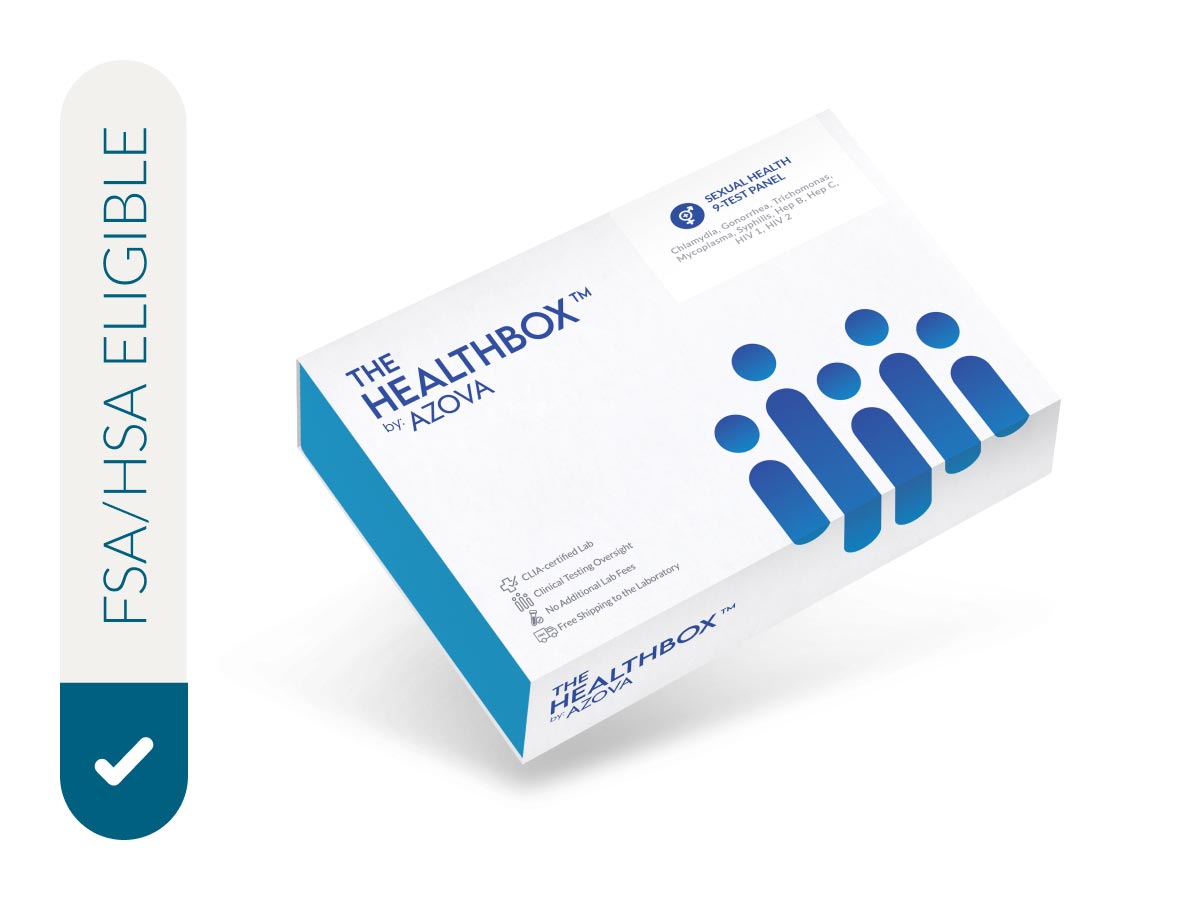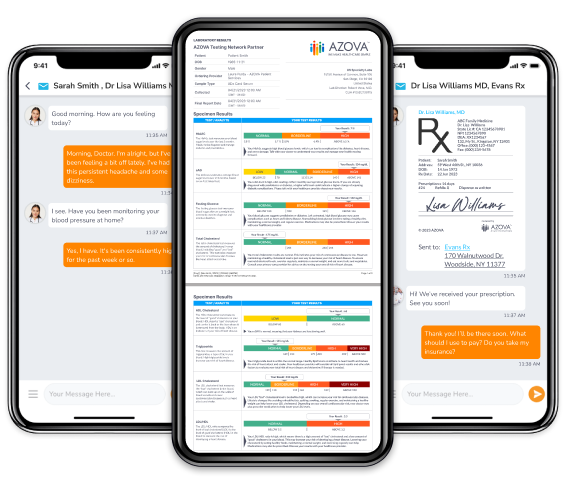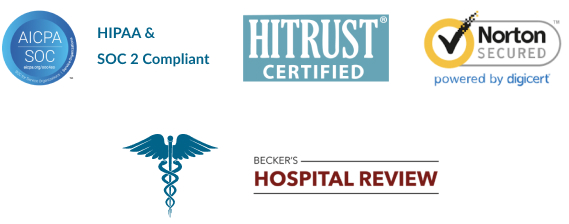Reliable STI treatment, just a click away.
Connect with a board-certified healthcare provider via a quick, secured video visit or messaging. Receive an STI diagnosis and treatment plan, all without leaving home.
Available in all 50 states.

Understanding sexually transmitted infections (STIs)
Sexually transmitted infections (STIs) are most commonly transmitted through unprotected sexual contact. In addition, some STIs can spread during pregnancy, childbirth, breastfeeding, or through infected blood and blood products. Over one million curable STIs are contracted each day.1
According to WHO estimates from 2020, there were 374 million new cases of four key STIs: chlamydia (129 million), gonorrhea (82 million), syphilis (7.1 million), and trichomoniasis (156 million).2
Without treatment, STIs can cause serious health issues such as neurological and cardiovascular diseases, infertility, ectopic pregnancy, stillbirth, and a heightened risk of HIV. They are also linked to social challenges like stigma, domestic violence, and a decrease in overall quality of life.
Common types of STIs
- Chlamydia
- Gonorrhea
- Trichomonas
- Mycoplasma
- Syphilis
- Hepatitis B
- Hepatitis C*
- HIV 1
- HIV 2
*Hepatitis C is technically not considered a sexually transmitted infection (STI) because it is primarily found in blood, not in bodily fluids like semen or vaginal discharge. However, it can still be transmitted sexually, if blood from an infected person comes into contact with sores, cuts, or abrasions.3
STI symptoms4
STIs can cause a wide range of symptoms, from mild discomfort to serious health problems. It’s important to be aware of the common signs and symptoms, as some STIs, like chlamydia and hepatitis B, may not cause any noticeable symptoms at all.
- Pain: Pain during urination or sex can be a sign of gonorrhea, genital herpes, or other STIs. Pelvic or testicular pain can also be associated with chlamydia.
- Discharge: Unusual discharge from the vagina, penis, or anus can occur with chlamydia, gonorrhea, trichomoniasis, or other infections.
- Itching: Itchiness around the genitals may indicate genital herpes or pubic lice.
- Bleeding: Bleeding between periods or after sex is a common symptom of chlamydia.
- Joint and muscle pain: This can be a symptom of hepatitis B.
- Blisters and sores: Small blisters or sores around the genitals may indicate syphilis or genital herpes.
- Flu-like symptoms and rashes: These can be associated with STIs like HIV and syphilis.
Remember, many of these symptoms can also be caused by other conditions, so it’s essential to consult a healthcare professional if you suspect you may have an STI. Early diagnosis and treatment can help prevent serious complications.
STI causes
Sexually transmitted infections (STIs) are caused by a variety of pathogens, including5:
- Bacteria: Chlamydia and syphilis are common examples.
- Viruses: HPV and HIV are well-known viral STIs.
- Parasites: Trichomonas vaginalis is a parasitic infection that can be sexually transmitted.
These infections are primarily spread through bodily fluids during sexual activity, such as vaginal, oral, or anal sex. However, some STIs, like HPV, can also be transmitted through skin contact, such as touching an infected area.
While anyone can contract an STI, certain groups, including young people and men who have sex with men, are at a higher risk.6
STI treatments
Doctors can treat most sexually transmitted infections (STIs) with medication. Antibiotics can cure chlamydia, trichomoniasis, gonorrhea, and syphilis, although some strains of gonorrhea are becoming resistant to treatment.
Acute hepatitis B often doesn’t need treatment, but chronic hepatitis B can be treated with antiviral medications.
While some STIs cannot be cured, medications can help manage their symptoms. Daily antivirals, for instance, can control HIV and make it undetectable.
When to seek medical attention
If you have pain, bleeding, itching, discharge, burning during urination, or sores near the genital or anal area, you might have an STI. Don’t ignore these symptoms—get tested right away. AZOVA provides discreet Virtual Care with board-certified providers for the following STIs:
- Chlamydia
- Gonorrhea
- Trichomonas
- Mycoplasma
- Syphilis
- Hepatitis B
- Hepatitis C
- HIV 1
- HIV 2
Don’t suffer through stigma and complications. Get treatment for STIs today.

Sexual Health
The HEALTHBOX®
Sexual Health 9-Test Panel
Test for 9 common STIs discreetly at home (Chlamydia, Gonorrhea, Trichomonas, Mycoplasma, Syphilis, Hep B, Hep C, HIV 1, and HIV 2).
References
1World Health Organization. (n.d.). Sexually transmitted infections (STIs). Retrieved from https://www.who.int/health-topics/sexually-transmitted-infections#tab=tab_1
2World Health Organization. (n.d.). Sexually transmitted infections (STIs) – Fact sheet. Retrieved from https://www.who.int/news-room/fact-sheets/detail/sexually-transmitted-infections-(stis)
3Hepatitis Australia. (n.d.). Sex and Hepatitis C transmission. Retrieved from https://www.hep.org.au/hep-c/sex-and-hep-c-transmission
4Healthline. (n.d.). Sexually transmitted diseases symptoms. Retrieved from https://www.healthline.com/health/sexually-transmitted-diseases/symptoms
5Eunice Kennedy Shriver National Institute of Child Health and Human Development. (n.d.). Sexually transmitted diseases. Retrieved from https://www.nichd.nih.gov/health/topics/stds/conditioninfo/causes
6Office of Disease Prevention and Health Promotion. (n.d.). Sexually transmitted infections. Healthy People 2030. Retrieved from https://health.gov/healthypeople/objectives-and-data/browse-objectives/sexually-transmitted-infections
Need help or have questions?
Contact our AZOVA Customer Support team below
Live 24/7 chat
(quickest response)
You can chat with AZOVA’s Customer Support team for comprehensive support, including help with your account, testing, shipping, and results.
We typically respond within 5 minutes. Click the messaging icon on the lower right corner of the page to get started.



